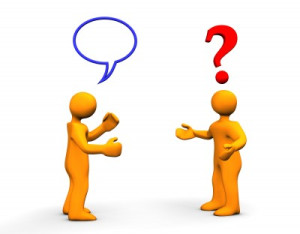Why you should never say these ten things to a translator (Part 1 of 2)
Medical Pharmaceutical Translations • Aug 17, 2015 12:00:00 AM

A few weeks ago, a list called “10 Things You Should Never Say to a Translator” was posted on aiaTranslations’ Facebook page. Reading it, I nodded in agreement and even gave a chuckle of the “Oh-man-I-know-that-feeling” variety from time to time.
But there’s a problem: Although lists like this are all too relatable for translators, they probably aren’t for clients or the general public…which is why these things keep getting said.
With that in mind, I figured it might be helpful to explain why each statement on the list makes translators’ blood boil. Here goes:
“I know a relative who studied abroad for a semester. I’m going to ask him to translate this text.” This statement is a double whammy, both showing a huge misunderstanding of what translation entails, and belittling translators. A professional translator is not only fluent in a language; they’re familiar with fine details like idiomatic expressions and figurative language. They also have extensive knowledge of the culture(s) their language(s) is/are associated with, including history, traditions, beliefs, and current pop culture phenomena. Studying abroad is an amazing experience (I can say this personally), but a few months in another country doesn’t automatically make you fluent in its language and culture.
“Why study to become a translator when you can just use Google translate?” This comment is common…and understandable. After all, translation bots are free and they often give you a functional translation. But they’ll never be able to replace an actual human who can pick up on things like figurative language, humor, proper names, and idioms. Need proof? Check out this experiment where I pitted myself against two translation bots.
“I studied *insert language here* in high school and I would like to work as a translator.” This one totally depends on who’s saying it. If you’ve just graduated high school or are realizing your calling and want to go back to school and become a translator, right on!
If, on the other hand, you’re implying that a few years of learning language basics is enough for you to be an excellent translator, you’re wrong. This article is an excellent example of how much further you have to go in order to truly master a language and know its culture – and be able to make it comprehensible for others. In it, we discover the challenges of translating an 11 th -century Japanese epic story into English, as well as modern Japanese. It’s not just about replacing one word or phrase with its linguistic equivalent — translators in recent centuries have had to understand the author’s contemporary references, culture, and attitudes, and put them in words that stay true to the original but are understandable to modern-day readers. They also have to choose whether to keep the language as poetic as the original or be more straightforward. And this is the same struggle for all translators of historic texts, or even contemporary literature.
Okay, so a text on a small business’s website or a social media post probably isn’t as complicated, but they still require more than replacing words. Unless you want to end up on a list of translation faux pas like this one, you’ll also need an understanding of the culture(s) you’re addressing, as well as mastery of slang and figurative language.
“Why do you own so many dictionaries? Wasn’t one enough?” Not all dictionaries are the same. Some are simple, while others go in-depth. Some might include helpful examples of how a word or phrase is used, or a list of idiomatic expressions associated with a word. Some dictionaries are unabridged (they include all the words in a language). Some focus on etymology (word origins), and others cover specific vocabulary or jargon. An older dictionary can provide clues to older usage. So, no, one isn’t enough if a translator wants to make absolutely sure that a word they’re considering is the right one for your text.
“Does it really take so long to translate that? The text isn’t long at all.” Remember the examples I gave in point #3? Translation isn’t just about replacing a word with its equivalent in another language; you have to find the best way to express ideas, and sometimes those are blocked by cultural barriers and other obstacles. And then there’s the challenge of finding the right way to say something, while still respecting the ideas and wording of the original text. All this can take a while.
Like doing a proper translation, explaining this list takes time. So I’m going to divide it into two parts. Check back next week for the stirring conclusion!
#aiatranslations #foreignlanguages #humantranslators #translations
